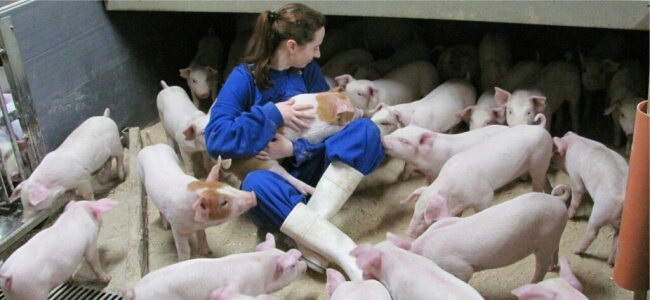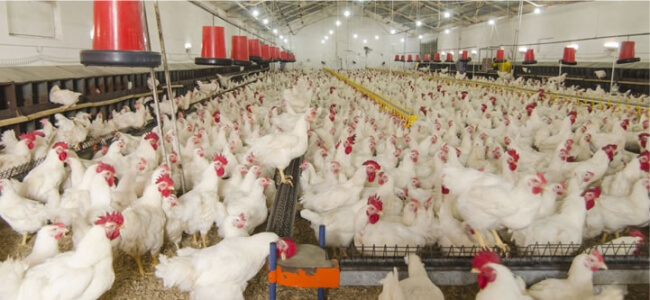Denmark is one of the richest developed countries in the world, being a member of the European Union and referring to the group of Scandinavian countries. Denmark is a very old state with a vast historical past that has been independent for the last 11 centuries. Throughout all this time, it has managed to create a modern thriving democracy in its territory.
Socialism is prospering in the Kingdom. The country takes care of its citizens in all possible ways in healthcare, education and social security. Agriculture and manufacturing are the main sources of revenue for the state. Trade, transport and services spheres are also highly developed.
The Danish population is 5.5 million. It is ethnically and culturally homogeneous. The Kingdom of Denmark widely and welcomingly opens its gate before a huge number of immigrants. 28,780 people have entered Denmark in 2018 alone, including Poles, Romanians, Bulgarians, Ukrainians and citizens of Baltic countries. Approximately 75% of them are employed or doing on-the-job training at the highly developed and leading Danish enterprises. When legally employed in Denmark, you have the right to take your family with you (your spouse and minor children). They may also work, study or open their own business in the Danish territory.
For the sake of successful integration, Denmark offers foreigners to visit various events, study Danish, history and law at national schools. Having lived in Denmark for more than 7 years and passed a language test, you may be granted citizenship.

Your main responsibility will be feeding and taking care of the pigs-insemination, castration and other. Normally working hours from 7 am to 16 pm, where you will have 2 breaks during the day

Your main responsibility will be feeding and milking the cows and small calves. All farms are equipped with modern milking systems, that include automatized machines. The program includes 2-3 milkings per day.

Your main responsibility will be feeding, taking care of chickens, collect and sort the eggs. All farms are equipped with modern stables. Working hours are from 7 am to 16 pm with 2 breaks during the day

Your main responsibilities will be providing support for the head chef, ensure the tidiness of the establishment, catering duties, preparation of food and daily tasks.

Your main responsibilities will be checking the quality of food products and controlling specific processes in the factory.
Denmark welcomes students from agricultural, hospitality and food technology higher educational institutions for on-the-job training in the the different sectors. Danish farms and facilities take leading positions in the global rating by such criteria as the introduction of innovative technologies, ecology and humanity of manufacturing, livestock management quality control, production process and realisation of output. Danish food products are considered one of the most qualitative and ecologically cleanest in the world.
• Work permission and COPY
• Employment contract and COPY
• Registration certificate (EU residence document)
• Original passport/ID card and its COPY
• Proof of your address in Denmark and its COPY
• Original marriage certificate and its COPY if you are married (even when your partner is not coming to Denmark with you)
• Divorce/death certificate if you are a widow (er)


After receiving CPR number, you must choose a doctor. Afterwards you will receive health insurance card. It is an yellow card with your CPR Number and your doctor’s name YELLOW CARD WILL BE SENT TO YOUR DANISH ADDRESS – REMEMBER TO HAVE YOUR NAME CLEARLY STATE ON THE MAILBOX. MOREOVER ALL CERTIFICATES MENTIONED ABOVE MUST BE IN ENGLISH, GERMAN OR SCANDINAVIAN LANGUAGE.
It is a digital signature a common log-in solution for Danish internet banking, government websites and other private companies. You will get your NEM ID with your CPR number and also a card with all your logins and passwords (You have to take care of this card and don’t loose it)


When you are registered in Denmark (received your yellow card), you are ready to open your own bank account. To open a Danish bank account, you need to bring these document with you.
Identity papers with photo (ID/passport/driving license)
• Documentation of your address in Denmark (CPR, NEM ID, registration paper)
• Work Contract
You can get more information from individual bank.
As soon as you get your bank account, send all information to your employer, so he could send you your salary.Good banks can be Danske Bank, Jyske, Nordea.
When you apply for CPR, you are providing the SIRI office with your accommodation address and you will get automatically in 2 weeks the residence card (pink card) at your address. If you didn’t get your residence card after 8 weeks, you have to call SIRI office:

The society in Denmark is formed as a welfare state, meaning everyone who is living here, must for that period of time also contribute to society.
For example as health care is free of charge for all trainees in Germany, Norway and Denmark it is a part of your taxes that you pay to society.
We at bixter.training have already applied for all students to be registered with the tax office, which means we have taken care of the paperwork.
For explanation on Danish Tax system
In Denmark taxes are calculated on a private base for each individual. Meaning its not always the same % tax that I pay, as my coworkers pay. There are some deduction and the % of tax will always be depended on how much you earn before taxes.
IN total you as a trainee must pay these kind of taxes:
Danish income tax consists of municipal tax, health system contribution (sundhedsbidrag), AM-bidrag and state tax.
Arbejdmarkedsbidrag (AM-bidrag) – labour market contribution
In addition to municipal taxes, all employees in Denmark also pay a labour market contribution (AM-bidrag) of 8 %. This is a tax, which, among other things, covers in the event of unemployment and sickness benefits and expenditure for training and activation. The labour market contribution is deducted from your entire gross earnings. Income tax is then deducted.
Municipal tax and sundhedsbidrag
Municipal tax make up the largest portion of the total income tax, 24 %(2019) for commuters living in Denmark
State tax in Denmark
State tax increases in line with income. In 2020 the following applied:
Managing your tax in TastSelv
In Denmark Skattestyrelsen have a system called TastSelv. You can find more information on Skattestyrelsens website. In TastSelv you can change the information if your income changes during the year, among other things. You need a NemID or a TastSelv code to be able to access your tax information. Please note that the TastSelv code is only valid until the 1st of January 2020, and will then be removed as an option for logging in
You can also read more here:
In Denmark a working week is 37 hours, accumulated into 160,2 hours a month. A working day lasts app. 8 hours – excluding self-paid breaks. You earn the right to 5 weeks of vacation money per year. They can be used in two ways:
When you will arrive to Denmark, the host-family will meet you at the airport and drive you to the house/apartment and will help you to accommodate there. The accommodation price is 200-250€ per month
When you are coming to Denmark for longer period of time, it is always a good idea to get a Danish number – of course if operator from your country is not offering something better. The cheapest option is Lebara operator.
• 49dkk = 4GB 4G data + 4 hours in Denmark + to 50 countries
• 99dkk = 100GB 4G data + 100 hours in Denmark + 50 countries
• 149dkk = 200GB 4G data + 200 hours in Denmark + 50 countries
If you would like to travel around in your free time, the best option are buses and trains. You can see the schedules and prices on www.dsb.dk. You can also look at the possibilities of discount cards for buses and trains here: https://www.rejsekort.dk/.
The five discount supermarkets that you want to look for are Netto, Fakta, Aldi, Lidl and Rema 1000. Netto and Fakta are Danish, Rema1000 is Norwegian and the rest are German. Nevertheless those five supermarkets are the best choice for daily shopping as well as for their special offers (always look for a sign Tilbud – discount). Every week you can find different special offers in each shop
Copyright © 2018 Bixter.work. All rights reserved. Bixter.work is a registered trademark. Made in Scandinavia